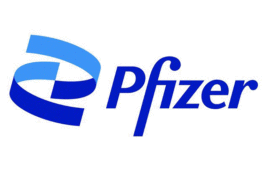
Cross sections of plant stem under microscope view [tonaquatic/Adobe Stock]
As he put it, it’s all about the “unique assembly of the right plants.” Coacillium contains four: Allium cepa L. (onion), Citrus limon (L.) (lemon), Theobroma cacao (cocoa) and Paullinia cupana Kunth (guarana). The composition, which includes a variety of flavonoids, polyphenols and methylxanthines, has been linked with reversing immuno-inflammatory reactions in hair follicles and adjacent dermal tissues.
Hopes and concerns surrounding JAK inhibitors
Janus Kinase inhibitors (JAK) have recently made strides in treating alopecia areata, which causes unexpected patchy hair loss. In 2022, both the FDA and the European Medicines Agency approved Eli Lilly’s baricitinib, the first JAK inhibitor to win approval in adults battling severe alopecia areata. In June 2023, Pfizer’s kinase inhibitor ritlecitinib won approval for individuals aged 12 and up with severe alopecia areata.
JAK inhibitors are, however, not without risks. Both Baricitinib and ritlecitinib carry black box warnings describing an elevated risk of serious infections, malignancies, thrombosis and major adverse cardiovascular events.
Coacillium, a botanical alopecia areata treatment

Saad Harti
In developing Coacillium the company aims not only to bring the botanical drug to patients with alopecia areata, but also to show other pharma companies the potential that botanical drugs overall have. “We belong to this industry,” Harti stated, “We’re not hippies living in a tent somewhere.”
Botanical drugs like Coacillium “can achieve exactly what a synthetic drug does” with outcomes that are “probably as good or even better” than conventional synthetic pharmaceuticals.
Results of the recent RAAINBOW Phase 2/3 trial were promising with the trial hitting primary and key secondary endpoints. In particular, Coacillium was associated with improvements in hair regrowth based on the Severity of Alopecia Tool (SALT) score when compared to placebo. Some 96% of responders continued to show improvement even after the treatment was discontinued.
The side effect profile of JAK inhibitors limits their use to severe cases. While pleased that a treatment option is available, Legacy Healthcare sees an opening. JAK inhibitors are a “great advance for 10% of the patient population,” Harti said. “The majority of the population — the 90% or more — don’t have the severity of the disease that would make them eligible for such a therapy.”
The growing landscape of botanical pharmaceuticals
Legacy Healthcare isn’t alone in its focus on botanical drugs. Other noteworthy examples include GW Research, which won FDA approval for a cannabis derivative in 2018 to treat a severe form of epilepsy. Jazz Pharmaceuticals acquired the company in 2021. Several plant-derived anticancer drugs have also won FDA approval, including Taxol/Paclitaxel, a compound discovered in the Pacific Yew tree (Taxus brevifolia).
The public has long had a fascination with herbal therapies — a trend that has accelerated in recent decades. “We’re all taking care of ourselves, trying to avoid potential toxins. This is a mega trend,” Harti said.
The promise of AI in botanical drug development
In the future, Harti sees the growing interest in AI as a boon for the development of botanical drugs. “Just picture a scenario where the ambition isn’t merely to combat a singular ailment as most pharmaceutical approaches do, but rather, the aim is to tackle a multitude of diseases – say, 20 diverse conditions – simultaneously,” Harti said.
Accomplishing such an objective would pose immense challenges from a data complexity perspective. “It’s not something that can be achieved by merely having a team of experts meticulously comb through scientific databases like PubMed or explore plant biology research,” he said.
AI can play a role in creating an atlas of druggable targets for individual diseases to help with the discovery process of botanical drugs. “Beyond discovery, the clinical development of a botanical drug is identical to a synthetic agent,” Harti said.
While the development of botanical drugs broadly aligns in many respects with the development of synthetic agents, the true challenge lies in manufacturing, Harti said.
Given AI’s prowess in analyzing vast datasets, spot patterns and forecast outcomes, AI could help botanical drug developers address the manufacturing variability in botanical drugs. “With synthetic agents, you know that every single drug you make will be the same,” Harti said. “It’s more difficult with biologics, but still, there are a lot of similarities with synthetic drugs.” But with botanical drugs, Harti said, “you can take everything you know [about drug manufacturing] and throw it in the bin because plants are unique.” Researchers, for instance, could compare individual apples from the same tree with mass spectrometry and see that their composition is different.
Filed Under: clinical trials, Dermatology, Drug Discovery, machine learning and AI



